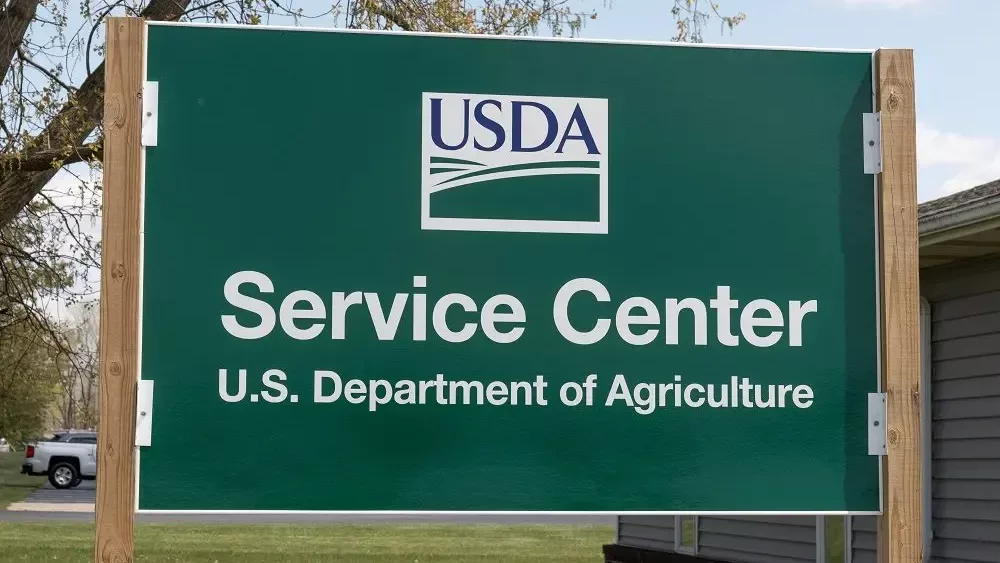When Michigan Gov. Gretchen Whitmer issued the state’s “Stay Home, Stay Safe” Executive Order (EO 2020-21), she advised reporters during the press conference that the EO is just that – an order — not a guidance document.
Put bluntly, those found to be in violation of the EO will be charged with a misdemeanor.
While the EO recognizes Michigan’s food and agriculture industries and related workers as “Essential Critical Infrastructure” to ensure continued food security, Michigan Farm Bureau (MFB) and the Michigan Ag Business Association (MABA) are recommending farmers take some additional steps to ensure farm employees can avoid problems with local law enforcement.
Communicating to your employees will be important. It may not be immediately apparent to people across the state, including agribusiness employees reading news reports, that food and agricultural businesses can continue to operate as essential infrastructure. MFB recommends considering a communication to employees detailing your operational plans.
See a sample Farm Employee Communication letter here.
Michigan Farm Bureau is also encouraging farm employers to provide a letter to employees who are carrying out essential functions. The organization recommends employees be provided a brief in-transit letter on company letterhead identifying them as an employee of a food/agricultural business, and referencing both the executive order and the DHS/CISA memo.
See a sample Farm Employee In-Transit letter here.
Health and safety remain paramount. This order is about protecting public health, and MFB strongly urges employers to review the social distancing and best practices information available both in the order and at Michigan.gov/coronavirus. In addition, the organization recommends taking a moment to review regular workplace safety procedures with your employees.
Executive Order 2020-21: MDARD Food and Ag Essential Infrastructure Guidelines
In accordance with Whitmer’s EO 2020-21, and to protect the public health, the following components of the Michigan food and agriculture sector are deemed essential:
- Workers supporting groceries, pharmacies, and other retail that sells food and beverage products.
- Workers supporting and operating gasoline stations.
- Restaurant carry-out and quick-serve food operations; carry-out and delivery food employees.
- Food manufacturer employees and their supplier employees including those employed in food processing facilities (packers, meat processing, cheese plants, milk plants, produce, etc.); livestock, poultry, seafood slaughter facilities; pet and animal feed processing facilities; human food facilities producing by-products for animal food; beverage production facilities; and the production of food packaging.
- Farm workers including those employed in animal food, feed, and ingredient production, packaging, and distribution; manufacturing, packaging, and distribution of veterinary drugs; truck delivery and transport; farm and fishery labor needed to produce our food supply domestically.
- Workers who care for animals at veterinary clinics, animal shelters and research facilities. Veterinary clinics should only be performing essential life-saving procedures; all other non-essential procedures should be delayed.
- Farm workers and support service workers including those who plant, grow, and harvest agricultural commodities; commodity inspections; fuel ethanol facilities; storage facilities; and other agricultural inputs.
- Employees and firms supporting food, feed, and beverage distribution, including warehouse workers, vendor-managed inventory controllers, and blockchain managers.
- Workers supporting the sanitation of all food manufacturing processes and operations from wholesale to retail.
- Company cafeterias, specifically in-plant cafeterias, used to feed employees.
- Workers in food testing labs in private industries and in institutions of higher education.
- Workers essential for assistance programs and government payments.
- Employees of companies engaged in the production of chemicals, medicines, vaccines, and other substances used by the food and agriculture industry, including pesticides, herbicides, fertilizers, minerals, enrichments, and other agricultural production aids.
- Animal agriculture workers including those employed in veterinary health; manufacturing and distribution of animal medical materials, animal vaccines, animal drugs, feed ingredients, feed, bedding, etc.; transportation of live animals, animal medical materials; deceased animals for disposal; raising of animals for food; animal production operations; slaughter and packing plants; and associated regulatory and government workforce.
- Workers who support the manufacture and distribution of forest products, including but not limited to timber, paper, and other wood products.
- Employees engaged in the manufacture and maintenance of equipment and other infrastructure necessary to agricultural production and distribution.
- · MDARD has established an email address for industry, stakeholders, and consumers to submit questions and/or get clarification on specific areas of concern. MDARD-COVID19@michigan.gov
NOTE: These businesses should to the extent possible follow guidance from the CDC, as well as state and local government officials, regarding strategies to limit disease spread, which includes social distancing, frequent handwashing and sanitizing of surfaces.
Workers should be encouraged to work remotely when possible and focus on core business activities. In person, non-mandatory activities should be delayed until the resumption of normal operations.
When continuous remote work is not possible, businesses should enlist strategies to reduce the likelihood of spreading the virus. This includes, but is not necessarily limited to, enhanced cleaning protocols, separating staff by off-setting shift hours or days, and social distancing. These steps can preserve the workforce and allow operations to continue.
Michigan Farm Bureau Legal Counsel Allison Eicher suggests farm employers should already be making plans to protect the safety of their workforce and maintain normal business operations to the extent possible, should COVID-19 have a significant impact now and in to the future. Read the full story, “COVID-19: A legal perspective for farm employers”.
Michigan Farm Bureau and Michigan Farm News are committed to providing its members and readers with the latest news and information on the COVID-19 pandemic. For news, updates and resources, visit https://www.michfb.com/MI/Coronavirus/.






